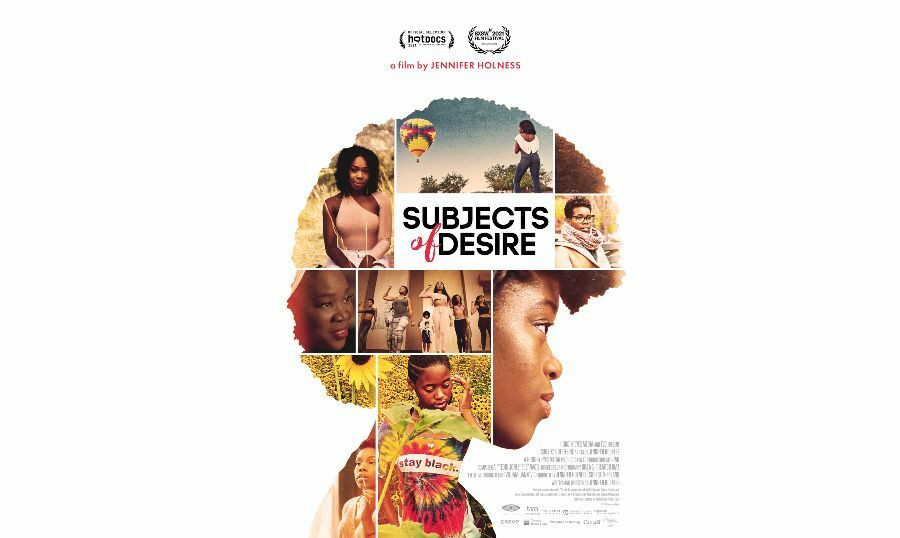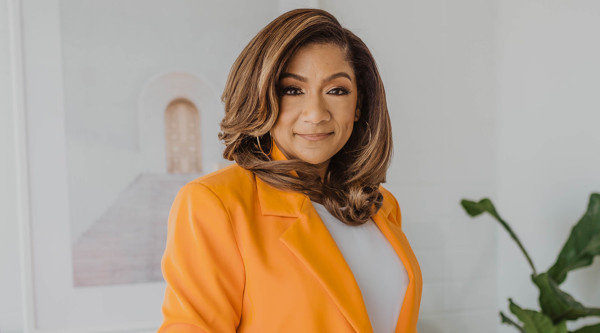“I think that a lot of Black girls and women grow up feeling ashamed that they do not fit the standards of beauty as dictated by the world of fashion. And it isn't just about physical beauty, but how you are perceived in the world,” says Holness. “Beauty gives you the ability to utilize your intelligence and makes a person more willing to listen to you and value you,” she says while explaining the importance of beauty for Black women and how society has deprived them of it for centuries. Holness argues that Black women are unprotected in today’s world. And that’s partly due to the fact that they fail the beauty standards and because they are brought up in a state of learned helplessness.
Holness has always felt beautiful as a Black woman. But growing up not being represented in media and observing the absence of Black beauty icons – who could have been a role model to her – she felt that she was an interloper. She felt like an outsider despite being a Canadian because she wasn’t white enough. Holness was not also happy with some of the conversations in films about Black women and their beauty. Addressing this issue has become even more important to her now that she is a mother to three teenage girls.
“I wanted to make a film to explore the root causes and sources of these negative stereotypes. I wanted to show that it wasn’t benign and that it doesn’t happen in a vacuum.”
Today, her dream has taken the form of an hour and 45-minute documentary, “Subjects of Desire” made possible after years of research on the subject.
Holness chose to do a documentary because it’s clearer and more connected to the truth than fictional films. A drama film would not do justice to this serious issue.
“The stories of Black people don’t often get portrayed with accuracy. This is why I’m really attracted to the nature of documentary because it inherently seeks out the truth.”
The film uses the Miss Black America beauty pageant as a springboard to explain how Black women were devalued and rejected by North American society, and how they are fighting to create their own space.
Commissioned by TVO, the film features several cast members including two Black singers – India Arie and Jully Black; the Miss Black America Beauty Pageant contestants, including Brittany Lewis, who was crowned the 49th Miss Black America in 2017; and Rachael Dolezal, the white woman who made headlines for identifying herself as a Black woman. It also features several authors and scholars. The documentary was also made possible with the support of her broadcaster and her family, especially her husband Sudz Sutherland, who is the co-producer of the film.
Retelling centuries of history, Subjects of Desire is about empowering Black women so they can take ownership of their essence. They are their own subjects, not objects desired by somebody else.
Subjects of Desire explores how Black women are perceived and how they have navigated around negative stereotypes over time. The film also takes a look at how the body images and styles of Black women that were previously ridiculed and mocked are now being celebrated because white women are having them.
In the film, Holness looks at the traditional stereotypes associated with Black women and how some of those prejudices still exist, for example:
(1) the mammy narrative, which portrays Black women as caretakers. This narrative was created to desexualize Black women and to normalize slavery.
(2) the Jezebel narrative, which depicts Black women as insatiable and sexually lewd.
(3) the Sapphire narrative, which depicts Black women as angry, loud, and irrational people.
While the film highlights the fact that Black women are beginning to embrace themselves, it also raises a big question mark on some Black men who still support the stereotypes that society has given to Black women and beauty.
“There is a need to unpack what’s been done to Black men to create these narratives in their minds.”
Although films have been made about Black women, colourism, and similar issues, Holness believes that those films have always painted a negative and sad outlook for Black women.
While Subjects of Desire talks about some of the bad experiences Black women go through, it is mostly joyful and shows the beauty of Blackness and Black femininity and how Black women are embracing themselves and the power that comes along with it.
“I think these films don't always resonate with the general audience who crave more of the same story, but in the form of Black trauma.” She adds, “When you leave that movie, the general audience feels, ‘oh my God, it's so terrible, I'm so glad my life is different.’ But when you leave my movie, you feel like, wow, these Black women are incredible. Some people may not appreciate that.”
The documentary successfully sets a new trend where Black women are finally able to validate their experiences because they see themselves represented on screen for the first time in a way that’s not traumatic. They share things they never told anybody, as well as emotions, feelings, and vulnerabilities that they never shared before.
Normally, it is challenging to get people to talk about their innermost feelings and insecurities. But for Holness, it was not difficult to get people to let their guard down.
According to her, one of the most important skills of a film director is listening. She was able to solicit extremely sensitive details from subjects in the film because most of the people are very open and warm and wanted to have their stories told. Besides her listening ability and the fact that she provided them with an honest vision of her film help a lot.
Holness explains her methodology to us, “You don't just listen with your ears, you listen with all your senses because little changes in body language are all important. You should be as honest as possible about what you hope to accomplish with your film. It certainly helps that I have three daughters and deal with a lot of teen emotions in my life. And so I just approached them in that same way.”
According to Holness, the film was not easy to develop because it was underfunded and the commissioning editors didn’t approve of the challenges that it addresses. Moreover, it was difficult to get the Miss Black America Beauty Pageantry people at the beginning of the journey. Despite the challenges, Holness was able to finish a very strong film that will resonate for a long time with many people.
Holness has produced six documentaries so far and Subjects of Desire is the second documentary that she is directing. Throughout her works, she has tried to document the lives of Black folks in Canada. Her next piece is a four-part documentary series looking at the history of Black people in Canada – how they got here, how they navigate the culture here, and how they continue to thrive in Canada.
The film concludes with the remarks of Ryann Richardson, a contestant for the 2018 Miss Black America, where she emphasizes the layers of challenges that Black people need to fight for beyond beauty.
“I think Subjects of Desire is a powerful film that tells a story about Black women and beauty, but it engages everyone. All communities can benefit from it. Check it out and vote,” says Holness.

 By
By 








